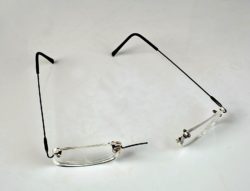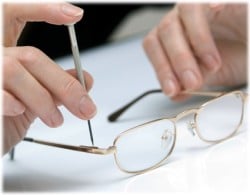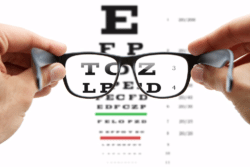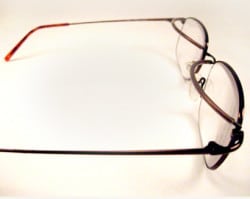Need help with your dry eyes? We can help.
Just about everyone experiences dry eyes at one time or another. Whether it’s caused by seasonal allergies, over work, not enough sleep or something medical, dry eyes are a direct result of your eyes not generating enough tears.
The basic function of tears is to coat the cornea – the clear covering on the front of the eye. The tears have a lubricating effect, giving your eyes moisture and protection. When tears stop working, your eyes get dry and extremely uncomfortable. Left untreated, dry eyes can develop into a chronic problem, known as “dry eye syndrome.”
Dry eye may include any of the following symptoms:
• Burning or stinging of the eye
• A gritty feeling, as if something is in the eye
• Excessive tears followed by very dry eye periods
• Bloodshot, redness or pain
• Episodes of blurry vision
• Eye fatigue
• Uncomfortable contact lenses
• Unable to tolerate reading, working on the computer or sustained visual attention
At-Home Dry Eyes Remedies & Relief
Besides over-the-counter eye drops and gels, there are other alternative remedies that could help relieve your dry eye. Adding more vegetables to your diet, drinking more water and keeping hydrated can be helpful. Remove any fans around your home or workplace, that may be accentuating the dryness – this is true even when you sleep. And for quick relief, lay a warm, wet washcloth across your eyes for about 1-2 minutes.
What to Ask Your Eye Doctor re: Dry Eyes
If eye drops or at-home remedies are not helping, seek prompt medical care from your eye doctor. Because there are different factors that can affect the dryness of your eyes, here are a few things to discuss with your doctor that could help solve the problem and discomfort of dry eyes:
• Have your doctor recommend a good humidifier for your home that will increase the moisture in the air.
• Ask about vitamins or dietary supplements that could help increase the moisture in your eyes. Some fish oils or fatty acids have been known to help. It is also good to discuss dosage of dietary supplements with your primary medical doctor.
• Ask if punctual plugs are right for you. These are tiny, biocompatible devices inserted into the tear ducts to block drainage and increase the eye’s tear film and surface moisture.
• Ask about Cyclosporine, a prescription-only anti-inflammatory medication that treats dry eye. This is a long-term drug that may take 3-6 months of twice-a-day dosages before it starts to work.
• Are corticosteroid eye drops is right for you? These will help decrease inflammation if necessary.
• If you work around dust or vent particles, ask about wrap-around glasses or sunglasses.
• If you wear prescription eyeglasses, have your doctor adjust your glasses to fit close to your face.
• Inquire about side shields that adjust to your glasses. These can help slow tear evaporation from the eye surfaces.
• If you wear contact lenses, ask your doctor to recommend another type of lens, or if reducing the number of hours you wear your contacts could help the issue.
Once the underlying cause is diagnosed, it is important for you to follow the treatment plan that your eye care professional designed specifically for you. This will reduce the risk of potential complications and more importantly, lead you on your way to producing soothing, comforting tears.
For more questions or comments concerning dry eyes, contact the professionals at fixmyglasses.com.






